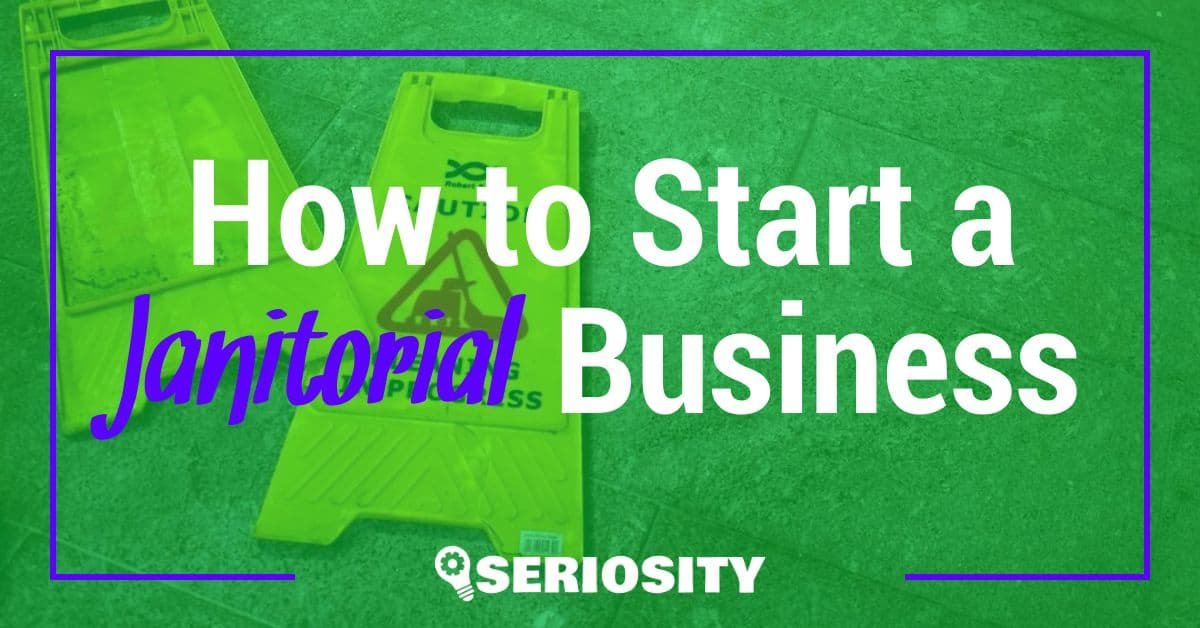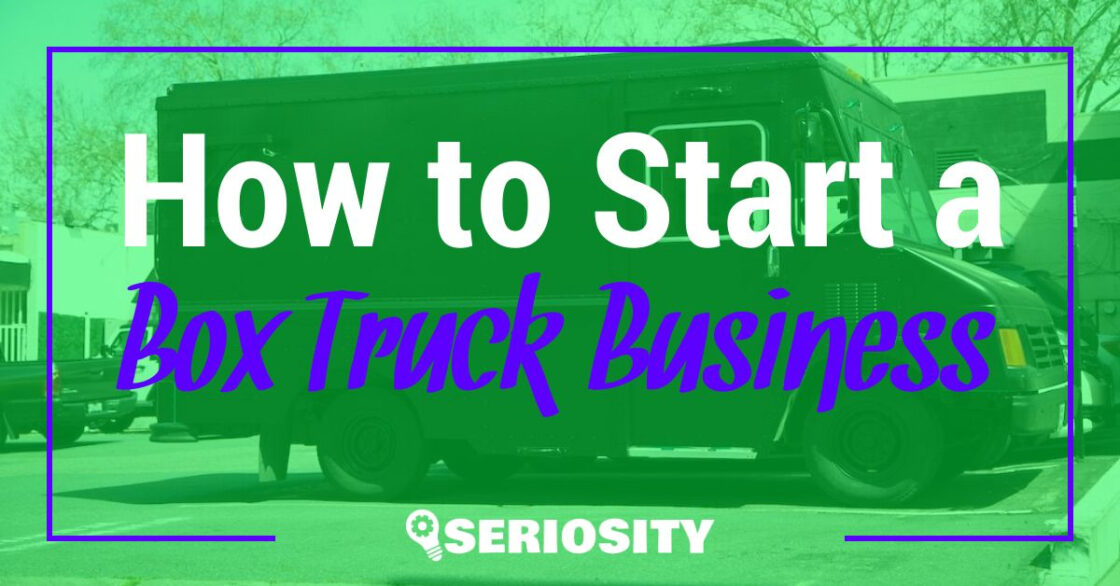Starting a janitorial business can be a lucrative opportunity for aspiring entrepreneurs, as this industry continues to grow in demand. With low start-up costs and a consistent need for cleaning services, a janitorial enterprise can offer financial stability and flexibility for individuals looking to build a successful business from the ground up. This article will guide you through the necessary steps to establish and operate a thriving janitorial company, taking you through vital considerations and strategies for success.
Before diving into the specifics of starting a janitorial business, it’s essential to understand the inner workings of the industry and how the competition operates. Researching competitors in your area will help you identify gaps in the market and allow you to select appropriate niches to target. By developing a clear business plan, you can better anticipate your expenses, including the cost of supplies and marketing efforts.
As you navigate the journey of establishing your janitorial business, certain steps will be crucial to your growth and development. From acquiring the necessary permits and licenses to implementing efficient marketing tactics, this article will delve into each stage of the process to ensure a smooth launch and continued success in the sector.
Market Research and Target Market
Analyzing Competition
When starting your janitorial business, it is crucial to conduct market research, as this will give you a better understanding of the commercial cleaning industry, your competition, and your target market. To analyze your competition:
- Gather information on local businesses offering similar services within your service area.
- Evaluate their pricing structures, service offerings, and marketing strategies.
- Determine their unique selling points and areas where they may lack, which can help you position your janitorial business more effectively.
Identifying Potential Clients
After analyzing your competition, it is important to identify your target market and potential clients. This will make it easier to tailor your marketing strategy and reach your ideal customers effectively. A few steps to take in identifying potential clients include:
- Research the types of businesses and facilities within your service area that would require janitorial services. This may include office buildings, retail establishments, healthcare facilities, schools, and more.
- Determine the size and scale of such businesses, as this will help you identify the size and resources required to service these clients.
- Survey local business owners and managers to understand their needs, preferences, and pain points when it comes to janitorial services.
- Create a list of prospective clients and organize it based on priority, location, and potential revenues.
By conducting thorough market research and defining your target market, you’ll have a strong foundation to start your janitorial business and position it for success.
Developing a Business Plan
Determining Goals and Strategies
A well-crafted business plan is essential for any janitorial business, as it sets the foundation for future success. Begin by determining your goals and strategies. Outline what you hope to achieve with your business and how you plan to accomplish these objectives. Consider both short-term and long-term goals, as well as the competitive landscape, target market, and services you intend to offer. For example:
- Short-term goals: Acquire 10 new clients in the first six months; establish a strong online presence with a professional website and social media engagement.
- Long-term goals: Become a leading janitorial service provider in the region; expand services to include additional specializations such as carpet cleaning or specialized sanitation treatments.
To solidify your strategy, conduct a SWOT analysis to identify your business’s strengths, weaknesses, opportunities, and threats. This information will guide you in crafting a robust plan that capitalizes on your advantages while addressing potential hurdles.
Budgeting and Financing
Another critical aspect of your janitorial business plan is budgeting and financing. Start by estimating your startup costs, such as equipment, transportation, insurance, licenses, and initial marketing efforts. Also, consider ongoing expenses such as employee wages, supplies, and insurance premiums. A detailed breakdown of your expenses will help you establish a realistic budget for your janitorial business. For example:
| Expense Category | Estimated Cost |
|---|---|
| Equipment | $5,000 |
| Transportation | $10,000 |
| Insurance and licensing | $2,000 |
| Marketing | $3,000 |
| Total Startup Costs | $20,000 |
Next, determine how you will finance your janitorial business. If you do not have access to sufficient personal capital, you may need to seek additional funding sources. This could include small business loans, lines of credit, or seeking external investors. When looking for financing options, consider factors such as interest rates, repayment terms, and eligibility requirements.
As part of your financial planning, also create a projection of your expected revenues, taking into account factors such as pricing for your services, the expected number of clients, and growth forecasts. This analysis will give you a clearer understanding of your business’s potential profitability and cash flow.
In summary, developing a comprehensive business plan for your janitorial business involves outlining your goals and strategies, conducting a SWOT analysis, estimating startup costs, and creating a budget and financial plan. This careful planning will provide the groundwork for a successful and profitable janitorial business.
Choosing a Legal Structure
When starting a janitorial business, it’s essential to choose the right legal structure for your company. The structure you select will influence many aspects of your business, from day-to-day operations and taxes to personal asset protection. There are three common legal structures to consider for a cleaning business: Sole Proprietorship, Partnership, and Limited Liability Company.
Sole Proprietorship
A sole proprietorship is the simplest and most common legal structure for small businesses. This type of business:
- Has one owner who assumes full responsibility for the company’s debts and liabilities.
- Requires minimal paperwork and is easy to set up.
- Offers complete control to the business owner.
- Allows all profits to be reported as personal income.
- Does not offer personal asset protection.
Keep in mind, however, that a sole proprietorship carries higher personal liability risk for the owner. If your business faces lawsuits or other financial setbacks, your assets may be at stake.
Partnership
If you’re planning to start a janitorial business with a partner or partners, a partnership may be the appropriate legal structure. In a partnership, the responsibilities and profits are shared among the partners. Partnerships can be divided into two types:
- General Partnership: All partners are actively involved in running the business and have equal liability for debts and obligations.
- Limited Partnership: One or more partners maintain control over the daily operations, while others contribute capital without taking part in company management.
Partnerships offer some benefits:
- Easy to establish and maintain.
- Pooling of resources and expertise.
- Split profits and losses among partners.
- Availability of more financing opportunities.
However, partnerships can also carry a higher liability risk, and disputes may arise over decision-making and profit-sharing.
Limited Liability Company
Another legal structure to consider for your janitorial business is a Limited Liability Company (LLC). This type of entity offers:
- Personal asset protection for owners.
- More legal flexibility in managing the business.
- Profit/loss allocation flexibility.
- Lower self-employment taxes compared to a sole proprietorship or partnership.
Registering an LLC typically involves filing forms and fees with the Secretary of State. It is slightly more complex and expensive to establish compared to a sole proprietorship or partnership. However, the increased personal asset protection and flexibility in management may be worth the trade-off.
Considering the differences among these legal structures, select the one that best suits your janitorial business’s size, scope, personal asset protection needs, and management preferences.
Naming Your Cleaning Business
Choosing the right name for your cleaning business is an essential first step in creating an effective brand image. Your business name should be unique, memorable, and a reflection of the services you offer. This will not only make it easy for potential customers to remember you, but it will also give them a clear idea of what kind of cleaning services you provide.
One way to brainstorm names for your cleaning business is to think of words related to cleaning or the specific types of services you’ll be offering. For example, you could use words like “sparkle,” “shine,” or “fresh,” combined with words like “maids,” “services,” or “cleaners.” This will help convey the sense of cleanliness and professionalism your company brings to the table.
Some examples of cleaning business names:
- Alkali Cleaning Solutions
- Beacon Cleaning Services
- Bright Delight Cleaners
- Buds With Suds Cleaning
- Castor Cleaning Company
- Clean Scene
- Clockwork Cleaning Co.
- Comfort Zone Cleaning
- Cut Glass Cleaners
- Dream Clean
- Dreamland Maids
- Energize Housekeeping
- Euphoria Cleaning Company
- Foam Up Cleaning
Remember to check the availability of the names you’re considering, as well as to verify if they are already in use or trademarked by other companies in your area or in the cleaning industry.
Once you’ve settled on a name, another important step is to register your company with the relevant government agencies. This will secure your business name and establish your company’s legal presence. The process of registering your company might vary depending on your location, so it’s important to research the specific requirements in your area.
In summary, naming your cleaning business involves selecting a unique and memorable name, verifying its availability, and registering it with the relevant authorities. By doing so, you’ll be well on your way to creating a solid foundation for your janitorial business.
Registering and Licensing Your Janitorial Business
Registration
Starting a janitorial business involves registering your business with the state. This process includes setting up a legal entity for your business and registering it with the state. Some essential steps to follow during registration include:
- Deciding on a legal structure for your business (sole proprietorship, partnership, LLC, etc.)
- Choosing a business name and checking its availability
- Registering your business with the state authorities
- Opening a business bank account
Licenses, Permits, and Certifications
Obtaining necessary licenses, permits, and certifications is crucial for your janitorial business. Here are some key points to consider:
- Business License: Apply for a business license by filling out an application and submitting it to your local licensing authority. The cost of obtaining a business license ranges between $70 and $150.
- Fidelity Bond: A fidelity bond is a form of insurance that protects your business against employee theft. The cost of obtaining a fidelity bond ranges from approximately $250 to $500.
- General Liability Insurance: This policy protects your business from potential liability claims, such as property damage or bodily injury caused by your cleaning services. The cost for general liability insurance ranges from $450 to $1,200.
- Permits: Some states or local jurisdictions may require additional permits, such as a fire marshal permit. Check with your local authorities to determine which permits are necessary for your business.
- Certifications: Acquiring certifications in specific cleaning methods, such as green cleaning or carpet cleaning, can help you stand out from the competition and showcase your expertise.
In summary, registering and acquiring the necessary licenses, permits, and certifications is a foundational part of starting a janitorial business. Ensuring your business complies with all legal requirements will provide peace of mind and enable you to focus on other aspects of growing your business.
Obtaining Proper Insurance
Starting a janitorial business involves several risks, including accidents, natural disasters, and potential lawsuits. To protect your business, it’s essential to obtain the proper insurance coverage. This section will discuss the importance of liability insurance and cleaning business insurance.
Liability Insurance
Liability insurance is a crucial component of protecting your janitorial business. It covers expenses arising from accidents, injuries, and negligence claims. In particular, general liability insurance provides coverage for third-party property damage and bodily injury, among others. Some common elements of general liability insurance include:
- Bodily injury coverage: Covers costs associated with injuries sustained by clients or other third parties on your business premises
- Property damage coverage: Covers expenses if your business activities cause damage to a client’s property
- Personal/advertising injury: Protects your business against claims of libel, slander, or false advertising
It’s essential to assess your business risks and choose a coverage limit that suits your specific needs. General liability insurance costs vary depending on factors such as location, business size, and scope of services, but typically range between $500 and $2,000 per year.
Cleaning Business Insurance
In addition to liability insurance, janitorial businesses should also consider specific cleaning business insurance. This type of insurance can help cover the costs of not being able to operate for a period of time and pay for expenses such as employee salaries, rent, and other ongoing costs. Two main types of cleaning business insurance are:
- Inland Marine Insurance: Janitorial services handle valuable equipment, documents, computer systems, signs, property, and cleaning equipment, which can all represent potential losses. Inland Marine Insurance covers these assets during transit or while stored at various work locations.
- Business Income Insurance: This insurance can protect you from the unexpected costs of business interruptions that might happen due to accidents, natural disasters, or other unforeseen events. It can cover expenses such as employee salaries, rent, and other ongoing costs. Typical costs for business income insurance range from $500 to $2,000 per year.
Obtaining proper insurance coverage is a crucial step in setting up a successful janitorial business. By considering both liability insurance and cleaning business-specific insurance, you can ensure financial protection and peace of mind for your business operations.
Purchasing Equipment and Supplies
Starting a janitorial business requires investing in essential cleaning tools and specialized equipment. This section will guide you through what you need to acquire for your business.
Essential Cleaning Tools
Equipping your cleaning business with the necessary tools is crucial for success. For everyday cleaning tasks, you will need the following items:
- Mops: Invest in both wet and dry mops for different surfaces.
- Brooms: Choose a variety of brooms for indoor and outdoor use.
- Dustpans: Purchase sturdy dustpans for easy cleanup.
- Brushes: Acquire different types of brushes for various surfaces, such as grout and tile brushes.
- Rubber gloves: Protect your hands with latex gloves while handling chemicals or other cleaning materials.
- Paper towels: Stock up on paper towels for quick and easy wipe-ups.
- Microfiber cloths: Use these reusable cloths for dusting and cleaning different surfaces.
- Cleaning caddy: Get a large bucket or caddy to carry your supplies from one location to another.
- Shoe covers and knee pads: Ensure your floors stay clean and protect your knees during scrubbing jobs.
Specialized Equipment
In addition to essential cleaning tools, you may need specialized equipment for specific tasks or more advanced cleaning services. Some examples include:
- Carpet cleaners: Invest in professional carpet cleaning machines to deep clean carpets and upholstery.
- Floor buffers and polishers: Purchase these machines for maintaining hard floors such as tile, marble, and wood.
- High-pressure washers: Acquire a high-pressure washer for cleaning large, outdoor surfaces like driveways and building exteriors.
- Window cleaning equipment: Get professional window cleaning tools like squeegees, extension poles, and ladders for reaching high windows.
- Vacuum cleaners: Choose high-quality vacuum cleaners suitable for various floor types and features like HEPA filters for allergen control.
- Steam cleaners: Purchase steam cleaners for chemical-free cleaning of various surfaces like floors, kitchen appliances, and bathrooms.
- Air movers and dehumidifiers: Acquire this equipment for drying out spaces after water damage or for controlling humidity.
Remember to maintain your equipment properly to ensure its longevity and get the most out of your investment. Prioritize purchasing the essential cleaning tools first, and as your business grows and diversifies its services, invest in specialized equipment as needed.
Determining Pricing and Services
When starting a janitorial business, it’s essential to determine the types of services you’ll provide, the market you’re targeting, and how you will price your services. In this section, we will discuss the differences between residential and commercial cleaning services, as well as the pros and cons of using hourly rates and flat rates for pricing.
Residential and Commercial Cleaning Services
Residential cleaning services typically involve cleaning homes, apartments, and condominiums, while commercial cleaning services focus on cleaning office buildings, warehouses, retail spaces, and other commercial properties. Both residential and commercial cleaning services may include tasks such as dusting, vacuuming, mopping, sanitizing, window washing, carpet cleaning, and trash removal. However, the specific services offered and their pricing within each sector can vary widely.
Residential Cleaning
- Weekly, bi-weekly, or monthly cleaning services
- One-time deep cleaning
- Move-in/move-out cleaning
- Specialty services such as carpet cleaning or window cleaning
Commercial Cleaning
- Daily, weekly, or monthly cleaning services
- Floor maintenance (e.g., waxing, stripping, buffing)
- Window washing
- Restroom sanitation
- Special event clean-up
Hourly Rate vs. Flat Rate
Pricing your janitorial services can be done using either an hourly rate or a flat rate. Each method has its advantages and disadvantages, so it’s essential to carefully consider which approach works best for your business.
Hourly Rate
- Pros: More transparent pricing; clients can see how long each cleaning session takes
- Cons: Can be difficult to provide accurate estimates; clients may feel they are overpaying if tasks are completed quickly
Flat Rate
- Pros: Clients can budget easier, knowing the exact cost of their cleaning service; can simplify billing for business owners
- Cons: The actual time spent cleaning may exceed the flat rate, requiring you to adjust the rate or absorb the extra costs
To determine your pricing, you’ll need to consider factors such as your target hourly rate, the square footage of the space you’re cleaning, and the specific services you’re offering. Once you’ve established your pricing structure, you can market your services confidently, secure in the knowledge that you’re providing competitive rates for your clients.
Marketing and Advertising Your Janitorial Business
Establishing an Online Presence
One essential element of marketing and advertising for your janitorial business is creating an online presence. This is important because most of your potential clients will likely search for cleaning services on the internet. To get started, you should:
- Create a professional and user-friendly website showcasing your services, client testimonials, and contact information.
- Register your business on search engines like Google to make it easier for customers to find you in local search results. Applications like Google My Business are crucial for managing your business’s online reputation.
- Utilize social media platforms (Facebook, Instagram, Twitter, LinkedIn) to market your janitorial services, share updates on your business, and engage with current and potential clients.
- Create a listing on online directories and review sites, such as Yelp, to improve your visibility and help potential clients access reviews from past customers.
Traditional Advertising Methods
Although digital marketing is becoming increasingly important, there are still benefits to using traditional advertising methods to market your janitorial business. Some effective offline tactics include:
- Local print ads in newspapers, magazines, and community bulletins to target potential clients in your area.
- Distributing brochures, flyers, and business cards to local businesses, office buildings, and residential communities.
- Participating in local trade shows, networking events, and community activities to promote your services and establish connections with potential clients.
- Consider limited-time special deals or promotions to encourage new customers to try your services.
By leveraging both online and offline marketing strategies, you’ll significantly increase your janitorial business’s visibility and reach a wider range of potential clients. Remember to keep an eye on the success of your marketing efforts, continually refining and focusing on the strategies that yield the best results.
Transportation and Logistics
Accommodating Vehicle Needs
When starting a janitorial business, it’s essential to ensure that you have appropriate vehicles for transportation. Ensure that your vehicle fleet meets the following criteria:
- Capacity: Vehicles should have sufficient space to transport cleaning equipment and supplies.
- Efficiency: Fuel-efficient vehicles will help reduce operating costs.
- Reliability: Durable and well-maintained vehicles minimize the risk of breakdowns and disruptions.
Consider these factors when selecting vehicles for your janitorial business:
| Vehicle Type | Pros | Cons |
|---|---|---|
| Compact Cars | Fuel-efficient, easy to maneuver | Limited cargo space |
| Vans | Ample cargo space, versatile | Less fuel-efficient than compact cars |
| Trucks | High cargo capacity, strong towing | Reduced fuel-efficiency, harder to park |
In addition to choosing the right vehicles, plan for regular maintenance to keep them in good working condition.
Planning Optimal Routes
Efficient route planning is crucial in a janitorial business. Well-designed routes save time, reduce fuel costs, and increase overall productivity. Here are some tips for planning optimal routes:
- Use mapping software: Invest in mapping software or route-planning apps to identify the most efficient and time-saving routes.
- Group clients geographically: Cluster clients based on their locations to minimize the distance between service sites.
- Schedule visits strategically: Schedule work in areas with less traffic during peak hours, and allocate tasks in congested areas during non-peak hours.
- Evaluate and adjust: Periodically review your routes for improvements and adjust as needed.
Implementing efficient transportation and logistics management in your janitorial business will ensure timely services, minimize operational costs, and contribute to overall success.
Hiring and Training Janitors
Sourcing Applicants
When starting a janitorial business, it’s crucial to find the right employees to join your team. You can source applicants by posting job ads on popular platforms such as Indeed, Glassdoor, and Craigslist. Also, engaging with local community job boards or attending job fairs can help attract potential candidates. Networking with other businesses that hire janitors, such as office buildings, restaurants, or retailers can also be beneficial.
Be sure to include clear job responsibilities, qualifications, and expectations in your job postings. Some essential qualifications may include:
- High school diploma or GED
- Ability to lift a certain amount of weight (e.g., 50 pounds)
- Previous janitorial or cleaning experience (although entry-level positions can be offered)
Employee Training Programs
Once you’ve sourced and hired your janitors, the next step is to establish an employee training program. This will help ensure that your staff is equipped with the necessary skills to provide quality cleaning services. It is essential to have a mix of formal and on-the-job training for your janitors. A typical training program may include the following:
- Formal Training: Introduce your employees to the cleaning tools, equipment, and detergents that they will be using daily. You can use online courses, manuals, or videos to familiarize them with best practices and safety measures for handling these resources.
- Hands-On Demonstrations: Organize practical training sessions, where your janitors can observe experienced staff or supervisors performing various cleaning tasks. This way, they can learn proper techniques and receive immediate feedback.
- On-the-Job Training: Allow your janitors to shadow senior team members so they can gain first-hand experience in performing tasks effectively and efficiently. This helps in boosting confidence levels and enhances their skills.
- Ongoing Learning: Encourage continuous learning for your staff, which can include attending industry seminars, workshops or conferences. This will contribute to their professional development and always keep them up-to-date with the latest cleaning equipment, techniques, and regulatory requirements.
Remember to document your training programs to track employee progress and ensure that your janitorial team meets your desired expectations. A well-trained workforce will ultimately lead to a more successful and profitable janitorial business.
Measuring Success and Growth
Analyzing Profit Margins
To measure the success of your janitorial business and ensure a prosperous entrepreneurial adventure, it is crucial to regularly analyze your profit margins. Profit margin is the difference between the revenue generated and the expenses incurred, expressed as a percentage. Understanding your profit margins will help you make informed decisions regarding pricing and operational costs.
Here are a few tips on analyzing profit margins:
- Compare your profit margins with industry benchmarks to determine if your business is performing well in the market.
- Keep a close eye on changes in profit margin over time to identify trends and areas for improvement.
- Investigate any significant fluctuations in profit margin, whether positive or negative, to identify their root causes and take corrective actions if necessary.
Monitoring Growth Trends
Another important aspect of measuring success in a janitorial business is monitoring growth trends. As a successful business owner, you should be tracking key performance indicators (KPIs) that indicate how well your business is growing over time. These indicators can include customer acquisition, revenue growth, and expansion into new markets.
To effectively monitor growth trends, follow these steps:
- Define your key performance indicators: Identify the most relevant KPIs for your janitorial business, such as the number of contracts secured, customer retention rates, and revenue growth.
- Set realistic targets: Establish achievable yet ambitious growth targets for each KPI to provide direction for your business.
- Regularly track and evaluate progress: Compare actual performance against targets and adjust your strategies as needed.
By consistently analyzing profit margins and monitoring growth trends, you will be better equipped to make strategic decisions and guide your janitorial business towards long-term success.





